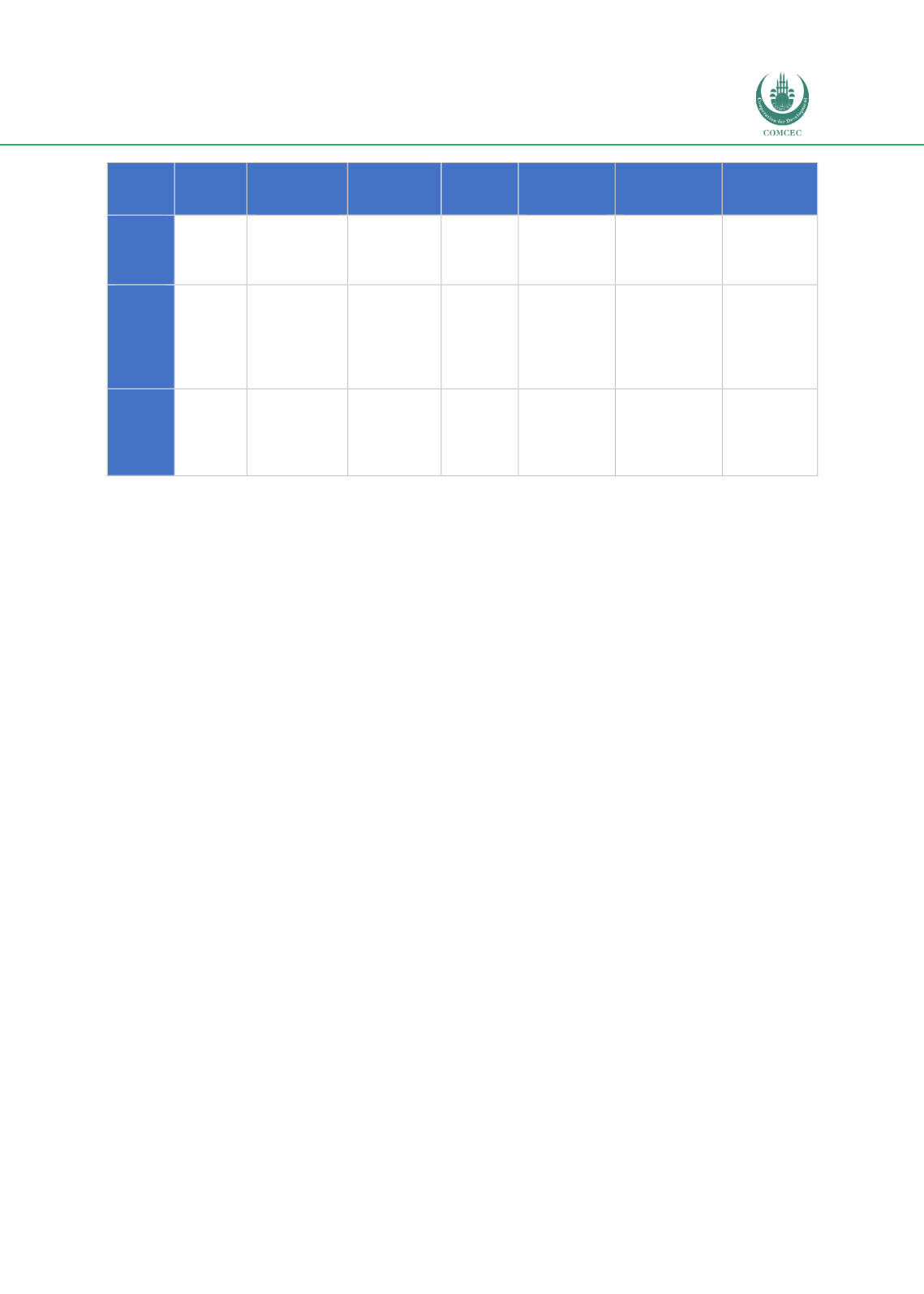

Islamic Fund Management
33
Vehicle Publicly
Offered
Redemption
& Trading
Practice
Settlement
Method
Solvency
Risk
Leverage
via
Borrowings
Portfolio
Leverage
(Derivatives)
Investor
Base
ETF
Yes
Infrequent
(primary)
Intraday
(secondary)
In kind
(primary)
Cash
(secondary)
Low
Possible,
with cap
Yes, with cap
Retail,
institutional
Private
Equity
Fund
No
Not
applicable
(close-
ended, with
long-term
finite life)
Cash
High
Some yes,
no cap
No
information
Institutional
Hedge
Fund
No
Quarterly +
lock-up + 90
days
advance
notice
Cash
High
High, no cap
High, no cap
Institutional
Source: IMF (2015, April, p 98)
In a
wakalah
-based (i.e.
wakalah
between investors and fund manager) Islamic fund, the
investors/unit holders are the principal (
muwakkil
) who act like partners (
musharik
) among
each other, and the fund manager is the agent (
wakil
) entrusted with the management of the
funds. In this case, the investors will share among themselves the profits in proportion to their
capital contributions or based on an agreed profit-sharing ratio that is determined upfront.
Meanwhile, the fund manager may charge an upfront fee before the funds are invested, or
charge performance-related fees. The fund manager is not liable for any loss of investment
value except in the case of negligence, misconduct or breach of terms. However, it is the duty of
the fund manager to employ appropriate risk-management tools and techniques that comply
with Shariah principles. In addition, the fund manager must ensure that investments in Islamic
funds do not entail any Shariah prohibitions such as speculation and gambling. As such, highly
leveraged investments should be strictly avoided.
2.2.2
The Importance of Fund Management in Islamic Capital Markets
Efficient financial intermediation
is key to channelling capital from domestic and foreign
sources to fund the needs of users of capital. Different financial intermediaries, including
AMCs, as illustrated in
Figure 2.9 ,play their unique roles in mobilising the entire financial
system, thereby creating an effective transfer of risks and management of liquidity, regardless
whether they are Islamic or conventional entities.
In this context, AMCs receive funds from various sources, including commercial banks,
insurance companies, pension funds, mutual funds, business entities, government institutions
and retail investors. They then channel those funds for investment in the financial markets.
Financial intermediation via AMCs helps investors to easily diversify their assets and provide
funding to the real economy, even when banks face financial distress. Banks, due to their
fractional reserve capital structure and regulatory issues, are prevented from funding capital
users in the same way as AMCs. The latter can invest funds in many more ways than banks
(which tend to provide debt funding to other banks, governments, larger companies and retail
















